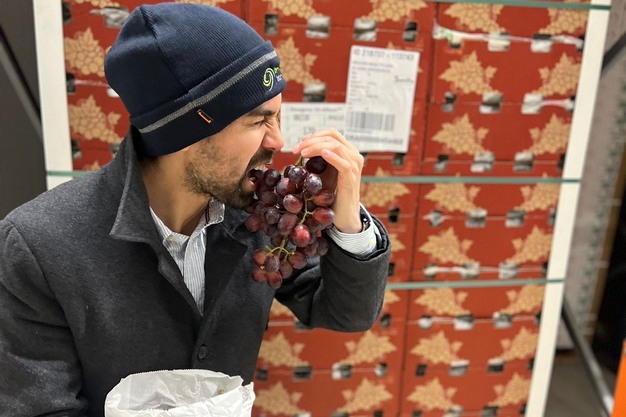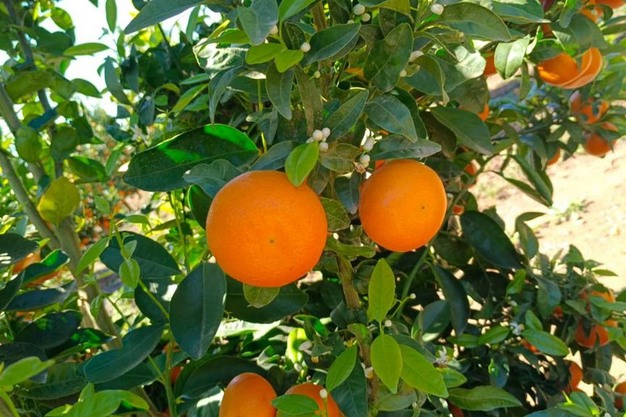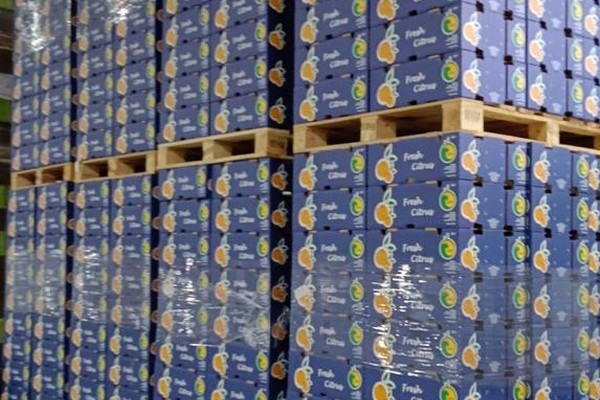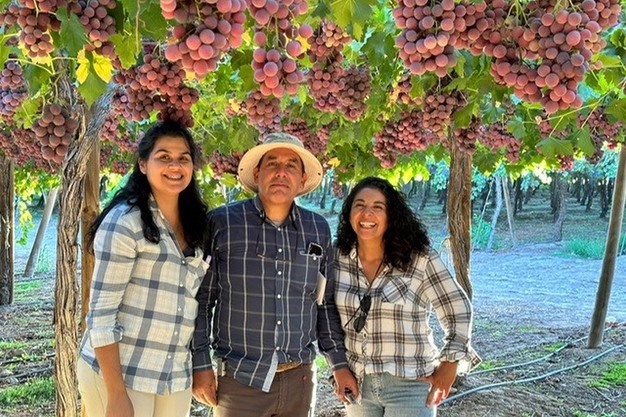The water scarcity in Chile's main Clementine growing region of the Ovalle-Vicuña area (Coquimbo Region) is leading to 30% lower volumes in this 2024 season. "Even producers who have orchards with water are facing challenges, causing doubts surrounding results in quality and sizing," says Gonzalo Aguirre, general manager of WHM Fresh in Chile.

Matias Gonzalez, CEO of WHM Fresh, checking fruit at arrival in the Netherlands before delivering to costumers.
"The lack of water at critical growing periods has diminished the potential of the Ovalle-Vicuña area causing many fields to struggle with exportable production, and those that currently do have water, with uncertainty as to whether they will achieve a quality product for export. Along these lines, the estimated volume of Clementines will show a decrease of 30% compared to last year. 70% of Clementine are produced in the Coquimbo region where some fields have been unable to export their production, either due to a lack of size or due to a low percentage of juice, all caused by water scarcity. As of week 19, Chile has exported 3,885 tons, which is equivalent to 35% less compared to last year," states Aguirre.

Less severe drop for mandarins
He says it is a different case for mandarins, with the drop less severe. "Mandarin production is distributed between the IV, V and VI regions in addition to fields that are entering production, therefore the expected drop in volume is 10% compared to the previous year. The situation in the north is similar to Clementines; there is a significant % of 4 and 5 gauge. For the south-central area there have been no water limitations, but the low temperatures recorded (-3 degrees Celsius) have caused frost damage resulting in loss of internal juice, preventing export. It is not yet possible to estimate the affected volumes, given that the damage is not visible and the risks of these events continue until the beginning of the harvest in late July-beginning of August in the earliest sectors. Some damage to the skin of the fruit has been reported in the V region, attributed to high relative humidity after the rains of the last few weeks. It will be necessary to monitor the damage to see its evolution/extension in order to calculate any impact on the national volume."

US as main market
Aguirre says their main citrus market is the US, where Chile is striving towards the Systems Approach. "The natural market for Chilean Clementines and mandarins is the American market, accounting for over 95% of exports to this destination. There are some exports to Europe and the UK, especially in mandarins, but the strong competition with South Africa pushes us to concentrate on the American market. The work carried out as an industry to implement the System Approach for the American market will be an excellent advance that will allow us to reach our destination with a fresher product, ensuring a better post-harvest life while avoiding crowds at ports of entry. The demand for mandarins is high because the fruit has an optimal sugar/acidity ratio, an intense colour, and a good post-harvest life that differentiates us from the competition. In addition, the production window allows us to harvest until the end of September or even the first week of October, although with an eye on California to avoid finding ourselves in the market when they enter."

WHM team at their farm, Agricola León.
He says their focus at WHM Fresh is mainly on the late part of the campaign, similar to their major crop of table grapes. "It is similar to what we do with grape quality and the taste of products. The campaign brings challenges to the production area that puts pressure on the commercial area to seek better prices. WHM is based on the production, export, and marketing of table grapes. The growth has been accompanied by new producers as well as the company's own production. The drive of the team and business partners has led us to diversify our portfolio to mandarins and cherries for the US and Chinese markets respectively," concludes Aguirre.
For more information:
Gonzalo Aguirre
WHM Fresh
Tel: +569 7977 0128
Email: gaguirre@whmfresh.com
www.whmfresh.com
